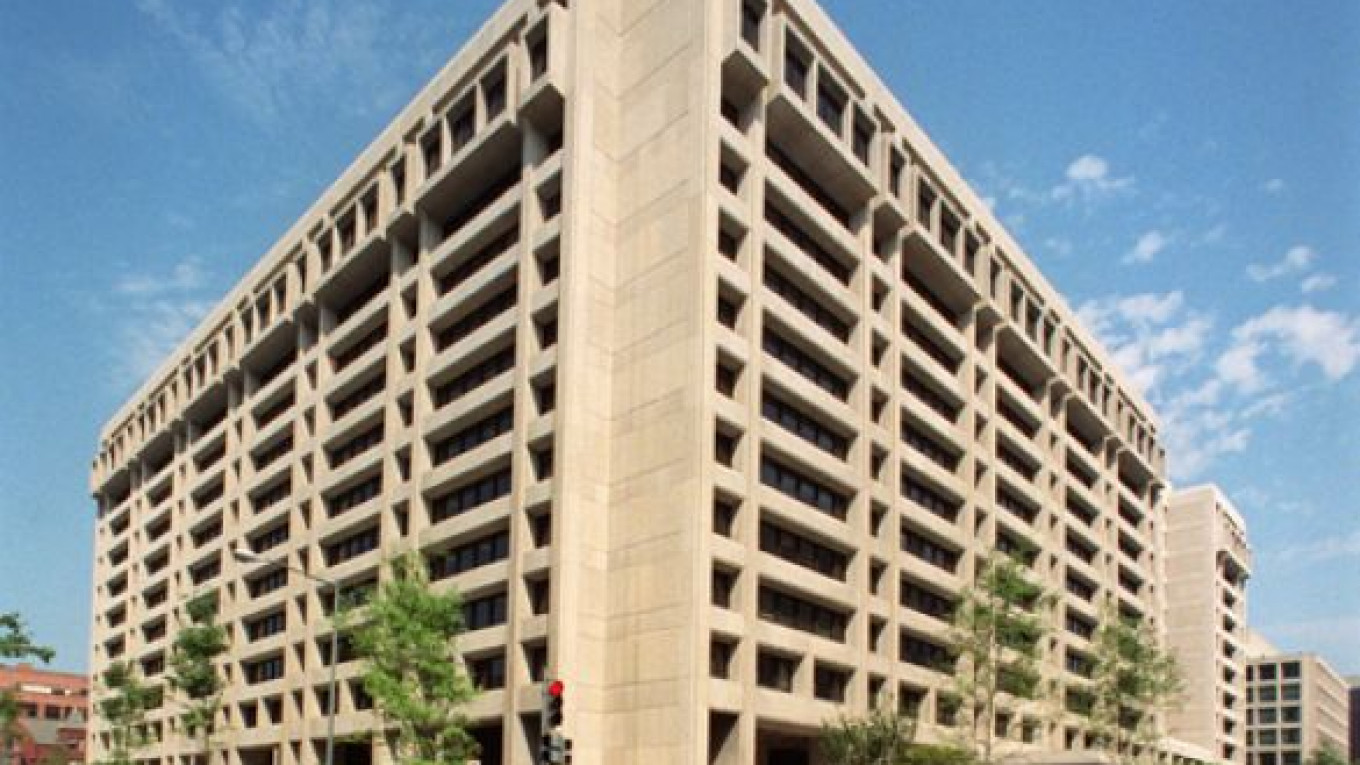Major emerging economies may set up a joint anti-crisis fund if they do not receive enough say in decision making at the International Monetary Fund under proposed voting reforms, a senior Russian official said.
The leaders of BRICS nations — Brazil, Russia, India, China and South Africa — pledged at the Group of 20 summit in Mexico to chip in $75 billion to boost the IMF’s lending power but had sought to tie the loans to voting reforms.
At the same time, BRICS finance ministers and central bank governors were instructed to study possible currency swaps arrangements and report to next year’s BRICS leaders’ summit in South Africa.
“It is clear that BRICS countries have entered the stage when they can demand to be reckoned with [in the course of the IMF reform],” Deputy Finance Minister Sergei Storchak told reporters.
“The issue of currency swaps, or maybe at some point a joint anti-crisis fund, should be viewed from this perspective,” he said. “It will be a parallel mechanism in addition to the IMF.”
The five BRICS nations represent 43 percent of the world’s population and about 18 percent of global economic output. They have about $4 trillion in combined reserves, with the lion’s share held by export powerhouse China.
“We want emerging countries to be treated fairly. The demonstration of our desire is our statement on the currency swaps mechanism,” Storchak said.
Russia and its partners in an ex-Soviet customs union, Kazakhstan and Belarus, have already set up an anti-crisis fund that has lent money to crisis-hit Belarus.
The emerging nations are set to raise their clout in the IMF by increasing their voting power in the quotas. Russia wants the quotas to be calculated based on the size of gross domestic product and foreign exchange reserves.
Storchak said a new formula for IMF quotas distribution should be approved this year before Russia assumes the G20 presidency.
Storchak said the BRICS countries understood that the funds would be used to deal with the eurozone crisis and that there was no aggressive criticism of the Europeans at the G20 summit in Los Cabos, Mexico.
“The task the Europeans face is very concrete: to break the link between the situation in the banking sector and sovereign debt as quickly as possible,” Storchak said. “The sooner they break this link, the higher the chances of them returning to the path of growth.”
Storchak said Europe’s move toward an integrated banking system was viewed by the emerging economies as more significant than European Financial Stability Facility bonds or a fiscal union.
Russia’s indebted companies are much better-positioned to weather the crisis than in 2008, when many suffered from margin calls and came close to default, he said.
“According to the information we have, the corporations that raised funds against collateral managed to solve their problems,” Storchak said.
Storchak said the Central Bank’s policy of a more flexible currency has been praised at the G20.
A Message from The Moscow Times:
Dear readers,
We are facing unprecedented challenges. Russia's Prosecutor General's Office has designated The Moscow Times as an "undesirable" organization, criminalizing our work and putting our staff at risk of prosecution. This follows our earlier unjust labeling as a "foreign agent."
These actions are direct attempts to silence independent journalism in Russia. The authorities claim our work "discredits the decisions of the Russian leadership." We see things differently: we strive to provide accurate, unbiased reporting on Russia.
We, the journalists of The Moscow Times, refuse to be silenced. But to continue our work, we need your help.
Your support, no matter how small, makes a world of difference. If you can, please support us monthly starting from just $2. It's quick to set up, and every contribution makes a significant impact.
By supporting The Moscow Times, you're defending open, independent journalism in the face of repression. Thank you for standing with us.
Remind me later.






